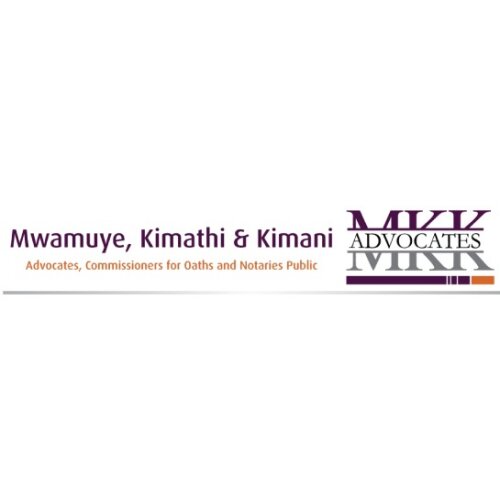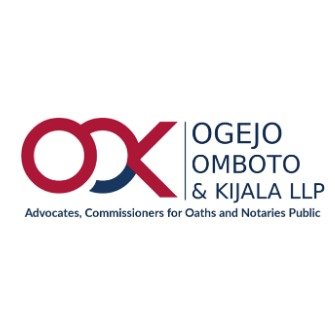Best Conveyancing Lawyers in Kisumu
Share your needs with us, get contacted by law firms.
Free. Takes 2 min.
Free Guide to Hiring a Real Estate Lawyer
List of the best lawyers in Kisumu, Kenya
About Conveyancing Law in Kisumu, Kenya
Conveyancing is the legal process involved in transferring ownership of property from one person to another. In Kisumu, Kenya, conveyancing includes several essential steps such as preparation and signing of sale agreements, conducting property searches, verification of title deeds, payment of stamp duty, and registration of the transfer with the relevant government office. Given Kisumu's vibrant real estate market and the complexities involved in land transactions in Kenya, understanding conveyancing law is crucial for both buyers and sellers.
Why You May Need a Lawyer
There are several situations where legal assistance becomes necessary in conveyancing transactions in Kisumu. These include:
- Buying or selling a plot of land or a house
- Verifying land ownership and obtaining a clean title deed
- Handling disputes involving land boundaries or double allocation
- Transferring property between family members or as part of inheritance matters
- Legal drafting of sale agreements to protect your interests
- Navigating government requirements, taxes, and fees during the transaction
- Investigating potential encumbrances or liens on a property
A conveyancing lawyer provides valuable assistance in ensuring that all legal requirements are met, that you are not exposed to fraud, and that the transaction process runs smoothly and efficiently.
Local Laws Overview
The conveyancing process in Kisumu is governed by both national and local legislation. The key laws include the Land Registration Act, the Land Act, and the Law of Contract Act. The transfer of property must be recorded at the Lands Registry in Kisumu. The process typically starts with a search at the registry to verify ownership, followed by drafting and executing a legally binding sale agreement. Stamp duty, which is a government tax on the transaction, must be paid before registration. Property registration solidifies the transfer of ownership and provides legal protection for the new owner.
In Kisumu, unique local circumstances may include land controlled by county government, leasehold versus freehold property, and the need to address communal or ancestral land interests. Engaging a knowledgeable local advocate is key to navigating these complexities.
Frequently Asked Questions
What is conveyancing law?
Conveyancing is the legal process of transferring property ownership from one party to another, typically involving searches, sale agreements, and registration of the new ownership.
Do I need a lawyer to buy or sell property in Kisumu?
While not mandatory by law, it is strongly recommended to use a lawyer to avoid risks like fraud, incomplete documentation, and disputes over ownership or boundaries.
What documents are required in a conveyancing transaction?
You typically need a copy of the title deed, land search results, sale agreement, identity documents, KRA PIN certificates, and payment receipts for taxes and fees.
How long does the conveyancing process take?
Depending on the complexity, the process can take between four weeks and three months, factoring in time for searches, drafting agreements, payments, and registration.
What are the main costs involved in conveyancing?
Major costs include legal fees, stamp duty (usually a percentage of the property value), registration fees, and payments for required searches and consent where applicable.
What is a land search and why is it important?
A land search is performed at the Lands Registry to check the status of the property, including ownership, any encumbrances, or disputes. It helps prevent buying disputed or encumbered property.
What is stamp duty and who pays it?
Stamp duty is a tax paid to the government based on the value of the property being transferred. The buyer usually pays it as part of the conveyancing process.
Can foreigners buy or own property in Kisumu?
Foreigners can buy property in Kenya but are generally limited to leasehold tenure of up to 99 years. There are also restrictions in certain areas such as agricultural land.
What happens if there is a dispute during a conveyancing transaction?
If a dispute arises, it is advisable to seek legal assistance promptly. Lawyers can mediate and, if necessary, initiate formal legal proceedings to resolve the matter.
Where is property registration done in Kisumu?
Registration is done at the Lands Registry in Kisumu. Documents to be submitted include the sale agreement, consent, proof of payment of stamp duty, and the transfer instruments.
Additional Resources
For those seeking more information or legal support regarding conveyancing in Kisumu, the following resources may be helpful:
- Ministry of Lands and Physical Planning: The main government authority for all land matters in Kenya, including conveyancing and property registration
- Law Society of Kenya (LSK) Western Branch: For finding qualified advocates and legal resources in Kisumu
- Kisumu County Government Lands Department: For matters related to county land, rates, and local approvals
- Lands Registry Kisumu: For conducting searches and registering property transactions
Next Steps
If you are considering buying, selling, or transferring property in Kisumu, the following steps are recommended:
- Consult with a qualified conveyancing lawyer in Kisumu to guide you through the process
- Gather all relevant documents, such as title deeds and personal identification
- Conduct preliminary searches at the Kisumu Lands Registry to verify property ownership and status
- Work with your lawyer to draft or review the sale agreement
- Ensure payment of all required taxes and fees, including stamp duty
- Submit all documents for registration at the Lands Registry to complete the transfer of ownership
- Retain copies of all documents and receipts for your records
Professional legal guidance makes the conveyancing process safer, simpler, and more secure, helping you avoid common pitfalls and legal disputes in property transactions.
Lawzana helps you find the best lawyers and law firms in Kisumu through a curated and pre-screened list of qualified legal professionals. Our platform offers rankings and detailed profiles of attorneys and law firms, allowing you to compare based on practice areas, including Conveyancing, experience, and client feedback.
Each profile includes a description of the firm's areas of practice, client reviews, team members and partners, year of establishment, spoken languages, office locations, contact information, social media presence, and any published articles or resources. Most firms on our platform speak English and are experienced in both local and international legal matters.
Get a quote from top-rated law firms in Kisumu, Kenya — quickly, securely, and without unnecessary hassle.
Disclaimer:
The information provided on this page is for general informational purposes only and does not constitute legal advice. While we strive to ensure the accuracy and relevance of the content, legal information may change over time, and interpretations of the law can vary. You should always consult with a qualified legal professional for advice specific to your situation.
We disclaim all liability for actions taken or not taken based on the content of this page. If you believe any information is incorrect or outdated, please contact us, and we will review and update it where appropriate.















